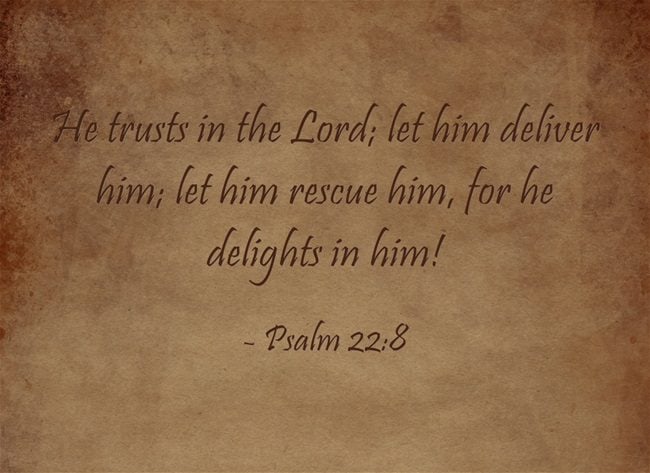Maybe you have heard of the Serenity Prayer. What is the meaning to Christians? Are there biblical principles from which we may learn from this prayer?

to accept the things I cannot change;
courage to change the things I can;
and wisdom to know the difference.
Serenity Prayer
The prayer has 11 more lines to it but here is the first section of the Serenity Prayer that most people are familiar with:
God grant me the serenity
to accept the things I cannot change;
courage to change the things I can;
and wisdom to know the difference.
The word serenity can mean being in a state of tranquility. It is like the calm after a storm in which there was no more wind and no more storms. It’s like a state of peacefulness, stillness, or quietness. The purpose of this prayer was to bring the Christian into a state of peace amidst the storms of life and to have the wisdom to accept those things that were unchangeable and to know which things a believer could change and to know the difference between the two.
The Serenity Prayer’s Origin
Since this prayer has been handed down by oral tradition for many years, it is hard to determine who the original author was but many credit it with Reinhold Niebuhr who spoke this during a sermon in 1943. In 1943, World War Two was still raging globally and there was anything but peace or serenity in the world at that time. Many in the United States lived with the fear of coastal invasions by Japan and the threat of German submarines being spotted off the Atlantic Coast. The timing of this prayer was not lost on those who were serving in the military and why it was likely included in the Federal Council of Churches (FCC) book that was distributed to military chaplains and servicemen by 1944.
The Serenity Prayer with Biblical Application
God grant me the serenity to accept the things I cannot change…
Numbers 23:19 “God is not man, that he should lie, or a son of man, that he should change his mind. Has he said, and will he not do it? Or has he spoken, and will he not fulfill it?”
God is Spirit and Spirit doesn’t change but mankind being physical is constantly changing. When everything around us is changing, it is comforting to know that “Jesus Christ is the same yesterday, today, and forever” (Heb 13:8). This prayer is asking God to grant to us the peace, assurance, or serenity to accept those things that we, as finite human beings, cannot change. There is wisdom in recognizing which things we can change and those which we cannot. Here is an example. I remember taking a child psychology class in which a professor brought toy trucks into a room for the girls to play with and in another room he brought dolls for the boys to play with. He was trying to make the point that girls act like girls and boys act like boys because of their environment. He believed that given the right environment, boys would play with dolls and girls would play with trucks but at the end of the day, the professor came into the room where the boys were and they had ripped off the heads of the dolls because they wanted to know what was inside. When the professor walked into the room with the girls, they said…”shhhh…quite, the trucks are sleeping.” They had put blankets on the trucks and they were “sleeping.” The point is that there are some things that we cannot change and there are some things that we can change so it’s important to recognize this and one important thing is that we cannot change people, at least in the long term.
Related reading: Top 10 Bible Verses About Peace
Courage to change the things I can; and wisdom to know the difference.
It takes courage to stand up to city hall but sometimes changes are necessary. One city fought against the fluoride being added to the city’s drinking water supply because they had read that there were dangers in drinking certain amounts of fluoride in the water over a long period of time and at particular risk were infants and young children. The city’s residents took to the streets and received over 5,000 signatures to change the city’s policy but it failed. Even so, it takes courage to take a stand in order to fight for what is in the best interests of society. That was the heritage of this nation’s founders who sought and then fought for independence. America was able to secure independence but not until a long, protracted bloody war against the British.
As relating to a person’s life, some things can be changed and some things cannot be changed and so there is wisdom in knowing the difference between the two. Clearly, “the Lord gives wisdom; From His mouth come knowledge and understanding” (Prov 2:6) and “Happy is the man who finds wisdom, and the man who gains understanding” (Prov 3:13). We cannot change a neighbor who is difficult to get along with because its next to impossible to change another person, even so “He who is devoid of wisdom despises his neighbor, but a man of understanding holds his peace” (Prov 11:12).
Conclusion
Those who have made peace with God through the blood of Christ have the assurance of having had the wrath of God removed from them or as Paul writes, “since we have been justified by faith, we have peace with God through our Lord Jesus Christ” (Rom 5:1) because “He Himself is our peace, who has made both one, and has broken down the middle wall of separation” (Eph 2:14). We can have peace or serenity with God because “having made peace through the blood of His cross” (Col 1:20b) we will be found “blameless at the coming of our Lord Jesus Christ” (1 Thess 5:23c). How is this possible? It is because “He made Him who knew no sin to be sin for us, that we might become the righteousness of God in Him” (2 Cor 5:21). For those who have refused to recognize that they are sinners there is no serenity because “the wrath of God [will be] revealed from heaven against all ungodliness and unrighteousness of men, who suppress the truth in unrighteousness” (Rom 1:18) and for them, “There is no peace” (Isaiah 48:22a).
Another Reading on Patheos to Check Out: What Did Jesus Really Look Like: A Look at the Bible Facts
Article by Jack Wellman
 Jack Wellman is Senior Writer at What Christians Want To Know whose mission is to equip, encourage, and energize Christians and to address questions about the believer’s daily walk with God and the Bible. You can follow Jack on Google Plus or check out his book Blind Chance or Intelligent Design
Jack Wellman is Senior Writer at What Christians Want To Know whose mission is to equip, encourage, and energize Christians and to address questions about the believer’s daily walk with God and the Bible. You can follow Jack on Google Plus or check out his book Blind Chance or Intelligent Design
photo credit: Loving Earth via photopin cc









